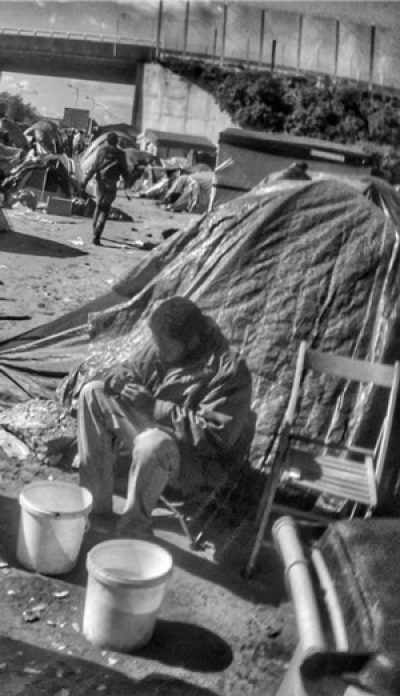Disabled, Homeless, Unwanted… (Ros' Blog)

Just over a year ago I wrote a blog post about the terrible plight of disabled Iraqi Christians, many of whom were internally displaced refugees. Now we have a vast number of people on the move, fleeing unimaginable horrors in places like Eritrea, Chad, Sudan, Iraq and Syria, not to mention a significant number in Latin America.
The United Nations High Commission for Refugees (UNHCR) estimates that of the 51 million refugees in the world today, 7.7 million are disabled. A study by the Women’s Refugee Commission found that disabled refugees encounter societal, environmental and communication barriers that make it difficult for them to access humanitarian aid.
One of the biggest problems faced by disabled refugees of all ages is social exclusion, stigmatisation and even violence. People who are innately vulnerable find their vulnerability heightened by their displacement from home. Since very few of the mainstream disability organisations work specifically with refugees, there is very little support for them.
In the Old Testament God gave instructions about people who migrated to join the community of the Children of Israel: “Do not mistreat or oppress a foreigner, for you were foreigners in Egypt.” (Exodus 10. 21). “You are to treat the resident alien the same way you treat the native born among you—love him like yourself, since you were foreigners in the land of Egypt.” (Leviticus 19. 34). “And you are to love those who are foreigners, for you yourselves were foreigners in Egypt.” (Deuteronomy 10.19). It’s hardly surprising if Jesus has a special place in His heart for refugees, since He spent His early life on earth as a refugee in Egypt fleeing a government that sought to kill Him.
There appears to be only one scheme specifically targeting disabled asylum seekers – a project for teaching British Sign Language and providing life coaching to deaf refugees. International conventions provide for disabled asylum seekers whose applications are being processed to be granted benefits which are normally only paid to people who have met certain contribution conditions, and that they must receive the protection afforded by conventions on disability discrimination. The Trust Fund for Handicapped Refugees was set up with money from the Nobel Peace Prize. In any case, UNHCR has always seen resettlement of disabled people as a last resort, preferring to prioritise their integration into their own communities.
But in the present crisis, none of this is of much help to a disabled refugee. Remaining in their own communities means certain death in many of the current areas of conflict, especially in regions where a stigma is attached to disability, and disabled people’s lives are not valued. Most Western countries are doing all they can to keep refugees out, and the countries bordering the conflict zones are so swamped with the sheer numbers of destitute people in need of help that distinguishing which ones are disabled and making extra provision is currently out of the question.
No one knows exactly how many disabled people there are among the refugees and internally displaced persons trying to make their way to a place of safety at present, but with 11 million of Syria’s 20 million population having had to flee their homes, and 4 million of them having managed to leave Syria, the numbers are clearly going to be considerable and UNHCR’s estimate may be a conservative one.
So what can we do in the face of such an overwhelming need? Once again, as I wrote just over a year ago, a key part of our role in the world as representatives of God’s kingdom is to pray that His Kingdom will come and His will be done throughout the world. We can pray that God will move hard hearts and that a spirit of compassion will arise for the millions of homeless people wandering the globe in search of safety. Those of us who are able can write and urge governments to give sanctuary to those who need it. All over the country, groups of people are collecting, storing and sorting aid to be shipped out to refugees. Wherever you live in the UK, there will be such a group near you because they are spreading like wildfire. And, in the face of need on such a huge scale, let’s remind ourselves that God is still sovereign, none of this has taken Him by surprise, and He is still the God who hears and answers the cry of the needy and oppressed.
Photograph courtesy of Viv Dawes, follow this link to her website.

